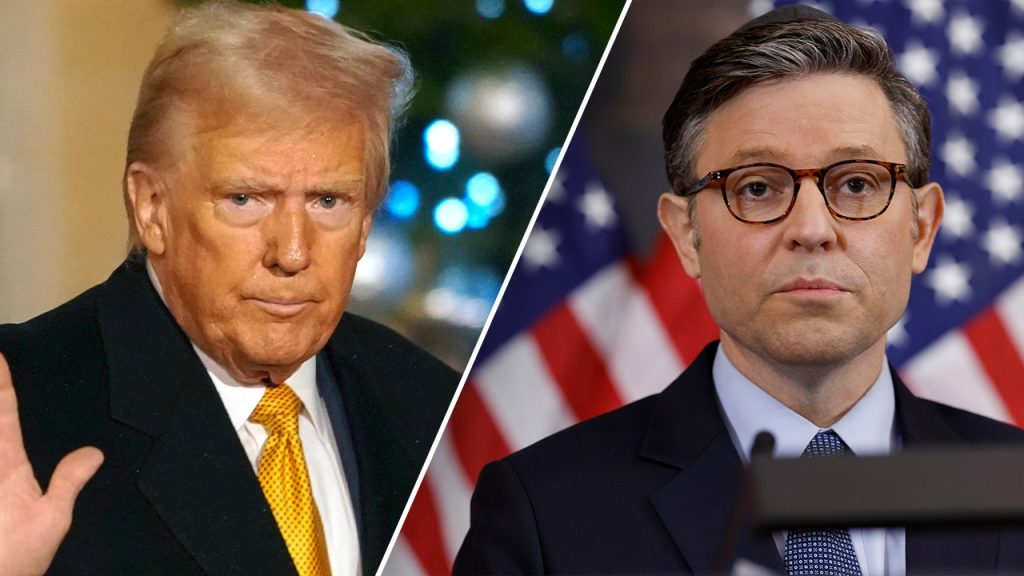The US House of Representatives descended into chaos on Thursday as a Republican-led effort to avert a government shutdown collapsed spectacularly. A spending bill, championed by President-elect Trump, failed to garner the necessary votes, exposing deep fissures within the Republican Party and highlighting the challenges Trump faces in uniting his own ranks. The bill’s defeat, by a vote of 235-174, was a significant blow to Trump’s early attempts to exert influence over the legislative process. Not only did the bill fail to achieve the two-thirds majority required for expedited passage, it also fell short of the simple majority needed for regular approval. The rebellion within the Republican Party, with 38 members voting against the bill, underscored the growing tension between fiscal conservatives and those aligned with Trump’s agenda.
The failed spending bill became a lightning rod for criticism, particularly from fiscal conservatives within the Republican Party. Representative Chip Roy of Texas, a vocal opponent of the legislation, delivered a scathing rebuke on the House floor, arguing that the bill’s provision for a two-year suspension of the debt limit would add trillions to the national debt, a move he deemed fiscally irresponsible and contrary to Republican principles. Roy’s staunch opposition, despite direct pressure from Trump, exemplified the growing divide within the party. This internal dissent signaled potential difficulties for Trump as he attempts to navigate the complex political landscape and advance his legislative priorities. The bill’s failure also raised questions about Trump’s ability to effectively wield his political capital and influence the legislative process.
The proposed legislation aimed to address the looming threat of a government shutdown by extending funding deadlines. However, it became entangled in a broader political battle over the national debt. The bill included a provision to suspend the debt limit until January 2027, a measure that drew sharp criticism from fiscal conservatives who viewed it as an irresponsible increase in the national debt. This provision also alienated Democrats, who largely opposed the bill, further complicating its prospects for passage. The combination of internal Republican dissent and unified Democratic opposition created an insurmountable obstacle for the legislation.
The political maneuvering surrounding the spending bill further inflamed partisan tensions and exposed the deep divisions within Congress. Democrats accused Trump and Elon Musk of interfering in the legislative process and derailing an earlier bipartisan spending deal that had been poised for passage. Their frustration manifested in vocal protests on the House floor, with chants of “hell no” echoing through the chamber as the vote on the new bill approached. This open display of animosity underscored the deteriorating relationship between the two parties and the increasingly challenging environment for bipartisan cooperation.
House Speaker Mike Johnson, facing the immediate aftermath of the bill’s failure, immediately initiated discussions with dissenting Republicans in a desperate attempt to salvage the situation. Johnson placed blame on Democrats for voting against the bill, highlighting their opposition to provisions related to aid for farmers and ranchers and disaster relief, measures that had previously enjoyed bipartisan support. He argued that the Democrats’ primary objection was the inclusion of the debt ceiling suspension, a point of contention that had become a symbol of the broader political battle over fiscal responsibility.
The failed vote on the spending bill marked a significant setback for President-elect Trump and raised serious concerns about the ability of the Republican-controlled House to govern effectively. The deep divisions within the Republican Party, coupled with the unified opposition from Democrats, created a legislative impasse that threatened to plunge the government into a shutdown. The immediate challenge for Speaker Johnson and House Republicans was to find a path forward that could garner sufficient support to avert a crisis. The long-term implications of this legislative failure, however, extended beyond the immediate threat of a shutdown, raising questions about the future of bipartisan cooperation and the ability of Congress to address critical national issues.


